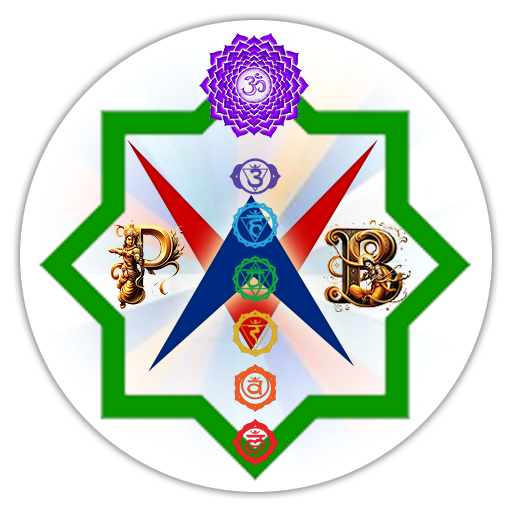కపిల గీత - 130 / Kapila Gita - 130
- Prasad Bharadwaj
- Feb 7, 2023
- 2 min read

🌹. కపిల గీత - 130 / Kapila Gita - 130🌹
🍀. కపిల దేవహూతి సంవాదం 🍀
✍️. శ్రీమాన్ క.రామానుజాచార్యులు, 📚. ప్రసాద్ భరధ్వాజ
🌴 3. ప్రకృతి పురుషుల వివేకము వలన మోక్షప్రాప్తి - 14 🌴
14. భూత సూక్ష్మేంద్రియమనో బుద్ధ్యాదిష్వివ నిద్రయా|
లీనేష్వసతి యస్తత్ర వినిద్రో నిరహంక్రియః॥
తాత్పర్యము : సుషుప్తి అవస్థయందు శరీరము, ఇంద్రియములు, మనస్సు, బుద్ధి అనునవి నిద్రయందు అహంకారమునందు లీనమగును. కాని, ఆత్మచైతన్యము నిద్రింపదు. సర్వథా అది అహంకార శూన్యమైనది. ఆ సమయమున జాగ్రత్, స్వప్న, సుషుప్తి అను మూడు విధములగు అవస్థలకు ద్రష్టా, సాక్షియైన వాడే పరమాత్మ.
వ్యాఖ్య : భూతేంద్రియ మనస్సులు పని చేయకున్నా ఆత్మ పని చేస్తుందా? ఆత్మ పని చేస్తేనే ఇవి పని చేస్తాయి. ఆత్మ పని చేస్తున్నా భూతెంద్రియ మనసులు పని చేయకుండా ఉండొచ్చు. అయినా ఆత్మ పని చేయట్లేదు అనుకోవడానికి వీలు లేదు.
నిదుర పోయినపుడు ఇంద్రియాలు, మనసు నిద్ర కూడా నిద్రపోతాయి. ఐనా ఆత్మ నిద్రపోదు. ఆత్మ ఉన్నదని గుర్తుపట్టడానికి నిద్రపోవడమే ఒక ప్రమాణం. అంటే ఇవన్నీ పని చేయడం మానేసినా పని చేసేది ఒకటి ఉంది. మనము నిద్రపోయినా అది మేలుకొనే ఉంటుంది. నిదురపోయి లేచిన వాడు "హాయిగా నిద్రపట్టింది" అంటే. నిద్రపోయినప్పుడు ఇంద్రియములూ మనసూ ఎటువంటి అనుభూతి పొందకపోయినా, ఆ అనుభూతిని చెప్పగలిగేది ఒకటి ఉంది. నిద్రావస్థలో కూడా ఆత్మ జాగరూకతతోనే ఉంటుంది. శరీరేంద్రియాలు పని చేయకున్నా ఆత్మ జ్ఞానం ఉంటుంది. నిద్రలో కూడా మనకి "బాగా నిద్రపోయాను" అనే జ్ఞానం కలిగిందంటే శరీరమునకు విడిగా ఆత్మ అనేది ఒకటి ఉంది. శరీరాదులు నిద్రపోయినా అది నిద్రపోదు. నిద్రపోకపోయినా నిద్రపోయినందు వలన కలిగే అనుభూతిని వ్యక్తీకరిస్తుంది. నిద్రపోకుండా నిద్రపోతున్న వాటిలో ఉండి అవి పొందిన అనుభూతిని మనకు చెబుతుంది. నిద్రావస్థలో కూడా ఆత్మ జ్ఞానం కలుగుతుంది. భూత సూక్ష్మ ఇంద్రియాలు, మనసు కూడా నిద్రపోతాయి. అప్పుడు కూడా నిద్రపోకుండా ఉండేది ఆత్మ. ఆ ఆత్మకు అహంకారం ఉండదు.
సశేషం..
🌹 🌹 🌹 🌹 🌹
🌹 Kapila Gita - 130 🌹
🍀 Conversation of Kapila and Devahuti 🍀
📚 Prasad Bharadwaj
🌴 3. Salvation due to wisdom of Nature and Jeeva - 14 🌴
14. bhūta-sūkṣmendriya-mano- buddhy-ādiṣv iha nidrayā
līneṣv asati yas tatra vinidro nirahaṅkriyaḥ
MEANING : Although a devotee appears to be merged in the five material elements, the objects of material enjoyment, the material senses and material mind and intelligence, he is understood to be awake and to be freed from the false ego.
PURPORT : The explanation by Rūpa Gosvāmī in the Bhakti-rasāmṛta-sindhu of how a person can be liberated even in this body is more elaborately explained in this verse. The living entity who has become satya-dṛk, who realizes his position in relationship with the Supreme Personality of Godhead, may remain apparently merged in the five elements of matter, the five material sense objects, the ten senses and the mind and intelligence, but still he is considered to be awake and to be freed from the reaction of false ego. Here the word līna is very significant. The Māyāvādī philosophers recommend merging in the impersonal effulgence of Brahman; that is their ultimate goal, or destination. That merging is also mentioned here. But in spite of merging, one can keep his individuality. The example given by Jīva Gosvāmī is that a green bird that enters a green tree appears to merge in the color of greenness, but actually the bird does not lose its individuality. Similarly, a living entity merged either in the material nature or in the spiritual nature does not give up his individuality. Real individuality is to understand oneself to be the eternal servitor of the Supreme Lord.
Continues...
🌹 🌹 🌹 🌹 🌹




Comments